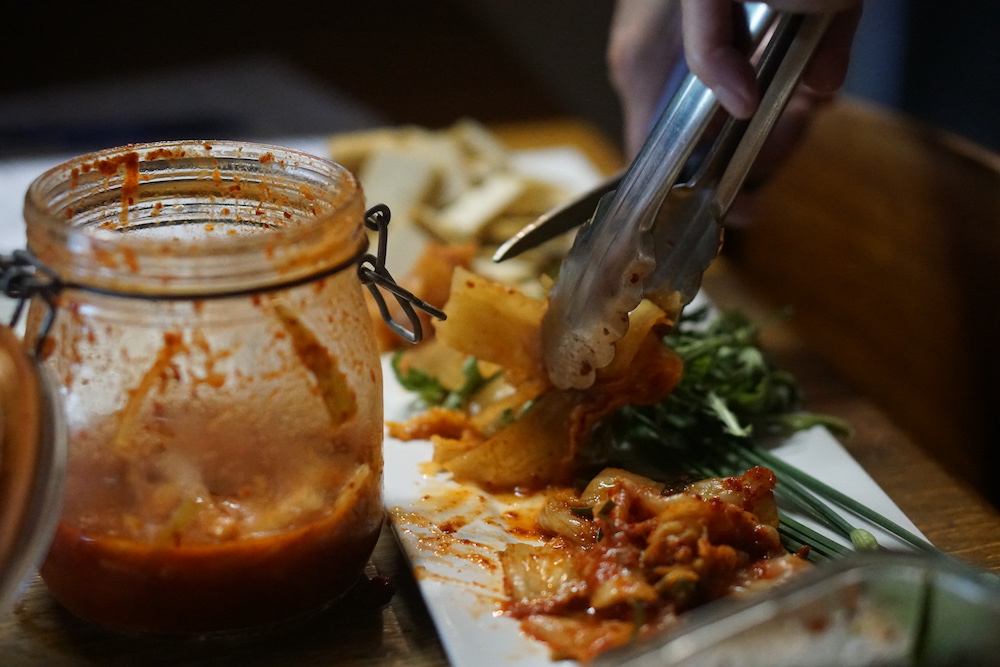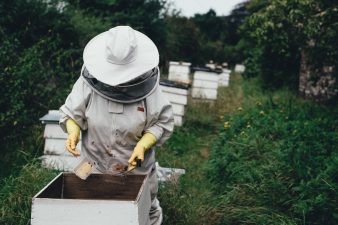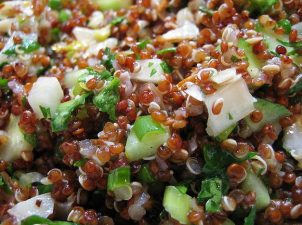How can you tell if a food is probiotic and good for your guts? Green Prophet gives a general guide.
You may know all about the ecosystem of a pond or a woodland, but have you stopped to think about the ecosystem of your own gut? Sandor Katz did and wrote a whole book on fermented food. Your digestive tract is home to trillions of organisms. For good health, we need to maintain a proper balance between those that are beneficial and those that are harmful.
How do you know if your gut “ecosystem” is in optimal condition?
Well if you:
- were born to parents with good gut flora
- were born in a vaginal birth
- had been exclusively breastfed for the first months of your life
- have eaten primarily nutritious, toxin-free food
- have seldom taken antibiotics, only when needed, and never for long periods of time
…then there’s a good chance your gut ecosystem is in balance.
Unfortunately, this describes practically no one in modern society (even if you like the Paleo Diet) which means we could all use a little help from our microbial friends. That’s where fermented foods come in.
What are some examples of fermented foods?
Before the advent of refrigeration, pickling was a much-needed way to save freshly harvested vegetables. Every country has its favorite pickled veggies – and the best source of information about local pickles is usually a grandmother. Some Middle Eastern favorites include pickled beets, pickled lemons, and dill pickles.

Preserved lemons, fermenting naturally, right. Preserved peppers, left
Before milk started to be routinely pasteurized, all dairy food had beneficial bacteria. Even today, some probiotic dairy foods are available. You can read here about natural, Slow Cheese in Europe. Many condiments also started their careers as fermented foods. One example is ketchup.
Closer to home, bright yellow “amba” – a mango sauce popular in Iraq and Israel and often drizzled on falafel – is another. Even soft drinks, such as ginger ale, which certainly aren’t healthy today, used to be healthy drinks brimming with beneficial bacteria.
How can you tell if it is probiotic?
Unfortunately, most, if not all, canned and bottled fermented foods you find in the supermarket are pasteurized. With nothing living in them, they can be stored for long periods. This is great for the manufacturer and retailer; but it means that these foods won’t help your gut ecosystem. These foods are technically “dead”.
Pickled vegetables (and fruit), will be probiotic if they are:
1. pickled without vinegar or oil.
2. unpasteurized.
What about yoghurt or kefir?
The modern process for making yogurt creates some confusion. The kind of yogurt found on your supermarket shelf is made from pasteurized milk; however probiotic bacteria are added to the milk to turn it into yogurt.
If it isn’t pasteurized a second time, it’ll have beneficial bacteria and will be labeled “bio”. Note that the fresher it is, the greater the quantity of more beneficial acidophilus and other bacteria it will carry.
Store-bought labane cheese, the soft sour cheese that Bedouin like to make, may be pasteurized and therefore not probiotic, but it’s easy to make your own labane from bio yogurt.

Fermented foods not only taste wonderful, they’re also wonderfully healthy. They even look attractive pickling in their jars. Once they’re ready, they keep in the fridge for months. They’re a wonderful addition to any meal.
Read more on fermenting:
Sandor “Sandorkraut” Katz’s Wild Fermentation, a Review
How to Make Pickled Lemons
How to Make Sourdough Bread




